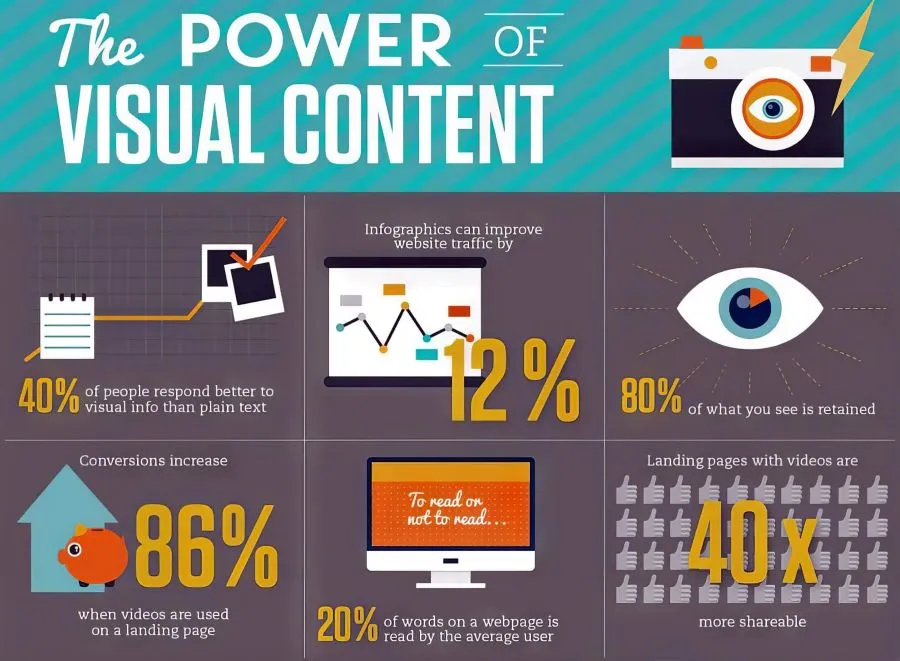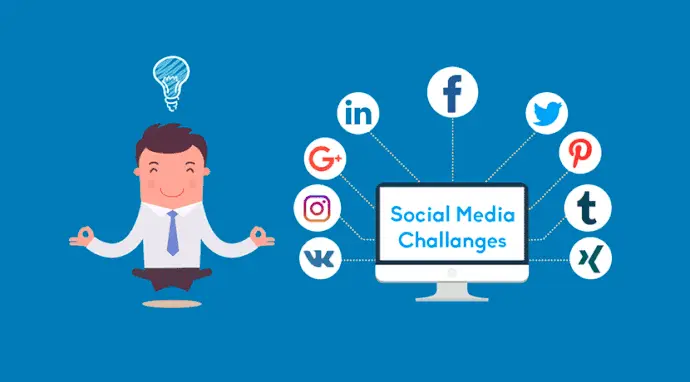
In today’s digital landscape, your website is not just a virtual storefront, but a hub where your business can connect with customers, generate leads, and design brand experiences. Social media marketing plays a crucial role in maximizing your online presence and reaching your target audience where they spend a significant amount of their time. By effectively utilizing social media platforms, you can boost brand visibility, engage with your customers, drive website traffic, and ultimately increase sales. Let’s research into the significance of social media marketing and how it can elevate your business in this competitive digital era.
The Rise of Social Media
The exponential growth of social media users
Before delving into the importance of social media marketing in today’s digital landscape, it’s crucial to understand the remarkable growth of social media platforms. The rise of social media has been nothing short of explosive, with platforms like Facebook, Instagram, Twitter, and LinkedIn attracting billions of users worldwide. The sheer number of people using these platforms on a daily basis presents a unique opportunity for businesses looking to connect with their target audience in a more personalized and engaging way.
The shift from traditional to digital marketing
With the advent of social media, there has been a significant shift from traditional marketing strategies to more digital-focused approaches. Media channels such as television, radio, and print ads are being replaced by targeted social media campaigns that allow businesses to reach their desired audience with precision. Social media marketing offers a cost-effective way to promote your products and services, engage with customers in real-time, and build a strong online presence for your brand.
Benefits of Social Media Marketing
Increased Brand Awareness and Reach
Some experts believe that social media marketing plays a crucial role in boosting your brand’s visibility and reaching a wider audience. According to a recent article on the relevance of social media marketing: navigating digital, leveraging social media platforms can significantly increase brand awareness and help you connect with potential customers you might not reach through traditional marketing channels.
Targeted Advertising and Cost-Effectiveness
For businesses looking to optimize their advertising efforts, social media marketing offers targeted advertising that allows you to reach specific demographics based on interests, behavior, and other factors. This targeted approach not only ensures that your message reaches the right audience but also helps in cost-effectiveness by reducing ad spend on irrelevant audiences.
Social media platforms provide tools that allow you to set your budget, target specific audiences, and measure the effectiveness of your campaigns in real-time. By utilizing these features, you can maximize your ROI and drive more leads to your website or business.
Improved Customer Engagement and Feedback
With social media marketing, you can foster better customer engagement by interacting with your audience in real-time. You can respond to inquiries, address concerns, and provide valuable information, creating a sense of trust and credibility with your customers. Additionally, social media allows for instant feedback from your audience, giving you valuable insights into their preferences and needs.
To engage effectively with your audience, consider posting interactive content such as polls, quizzes, or live videos. These engagement tactics not only drive interaction but also help in building a loyal customer base and enhancing brand loyalty.
The Power of Visual Content

The impact of images and videos on engagement
Your social media marketing efforts can significantly benefit from incorporating visual content such as images and videos. Research shows that posts with visuals receive higher engagement rates compared to text-only posts. Visuals have the power to capture attention quickly and convey messages more effectively than plain text. Any time you create content for your social media platforms, consider how you can include eye-catching visuals to increase engagement with your audience.
The role of influencers in social media marketing
Any successful social media marketing strategy involves leveraging the power of influencers. These individuals or groups have a loyal following on social media platforms and can effectively promote your products or services to a wider audience. Influencers can help increase brand awareness, drive website traffic, and generate leads for your business. By partnering with influencers whose values align with your brand, you can tap into their credibility and reach to connect with potential customers.
A comprehensive influencer marketing campaign involves identifying the right influencers for your brand, establishing authentic partnerships, and tracking the impact of their promotions on your business goals. Collaborating with influencers can humanize your brand and create a more personalized experience for your audience, leading to increased trust and loyalty.
Creating shareable and memorable content
Engaging your audience on social media requires creating shareable and memorable content that resonates with them. Whether it’s an aesthetically pleasing image, an entertaining video, or a visually appealing infographic, your content should be designed to capture attention and encourage sharing. When your followers find your content valuable or entertaining, they are more likely to share it with their own networks, expanding your reach and potentially attracting new customers to your business.
Content that evokes emotions, tells a story, or provides valuable information is more likely to be shared on social media platforms. By focusing on creating high-quality, visually appealing content that aligns with your brand values, you can enhance your social media marketing efforts and build a strong online presence.
Social Media Analytics and Insights
All Importance Of Social Media Marketing efforts hinge on data-driven decisions. By delving into Social Media Analytics and Insights, you gain a deeper understanding of your digital presence. In social media, metrics and Key Performance Indicators (KPIs) are crucial to measuring success.
Measuring success through metrics and KPIs
Metrics and KPIs serve as your compass in the vast digital landscape, guiding you towards optimal results. From tracking engagement rates to monitoring conversion metrics, each data point provides valuable insights into your social media performance. By analyzing these metrics, you can fine-tune your strategies and optimize every aspect of your online presence.
Identifying trends and patterns in customer behavior
Identifying trends and patterns in customer behavior is like deciphering a digital code that reveals what your audience desires. By analyzing customer interactions, feedback, and preferences, you can tailor your content, products, and services to meet their needs effectively.
Insights gained from customer behavior analysis pave the way for enhanced customer satisfaction, increased brand loyalty, and ultimately, higher conversion rates. By understanding your customers on a deeper level, you can forge lasting connections that drive business growth and success.
Using data to inform marketing strategies
Media strategies propelled by data insights are taken to navigating with a detailed map rather than blind intuition. By leveraging analytics and insights, you can tailor your marketing campaigns to resonate with your target audience effectively. Whether it’s crafting personalized messages or refining your advertising placements, data-driven strategies set the stage for success.
Measuring the impact of your marketing efforts allows you to iterate and optimize continually, ensuring that every campaign delivers the desired results. By harnessing the power of data, you can steer your business towards sustained growth and profitability.
Social Media Platforms: Strengths and Weaknesses

Facebook: the largest social media platform
On Facebook, you have access to the largest social media platform with a wide user base spanning various demographics. This platform allows you to reach a vast audience and engage with your customers through personalized content, ads, and posts. Facebook also offers detailed analytics that can help you track the performance of your marketing efforts and adjust your strategy accordingly.
Instagram: visual storytelling and influencer marketing
Visual storytelling is at the heart of Instagram, making it an ideal platform for businesses looking to showcase their products or services in a visually appealing way. With the rise of influencer marketing, Instagram provides a space for collaborations with influencers who can help promote your brand to their followers. It’s a platform where aesthetics and creativity play a significant role in capturing the attention of your audience.
It is imperative to maintain a consistent and visually appealing feed to attract and retain followers on Instagram.
Twitter: real-time engagement and customer service
One of the key strengths of Twitter is its real-time nature, allowing you to engage with your audience instantly and participate in trending conversations. This platform is ideal for providing quick customer service responses, addressing queries, and showcasing the personality of your brand through concise and engaging tweets. Twitter also enables you to monitor industry trends and keep an eye on what your competitors are doing.
Another aspect that sets Twitter apart is its character limit, forcing you to be concise and creative in your messaging, ensuring your content is impactful and to the point.
LinkedIn: B2B marketing and professional networking
LinkedIn is a platform specifically designed for B2B marketing and professional networking, making it an invaluable tool for businesses looking to connect with other professionals in their industry. It allows you to share industry insights, showcase thought leadership, and generate leads for your business. LinkedIn’s focus on professionalism and networking sets it apart from other social media platforms, providing a platform for building meaningful professional relationships.
LinkedIn’s robust features, such as LinkedIn Groups and LinkedIn Ads, offer businesses the opportunity to tailor their marketing efforts specifically towards a professional audience, making it an effective platform for B2B marketing strategies.
Challenges and Opportunities in Social Media Marketing

Managing online reputation and crisis communication
After establishing your presence on various social media platforms, one of the key challenges in social media marketing is managing your online reputation and handling crisis communication effectively. Your online reputation plays a crucial role in shaping how customers perceive your brand. Any negative feedback or crisis situation can spread quickly on social media and damage your reputation.
Opportunities: Balancing organic and paid content strategies
Opportunities lie in striking the right balance between organic and paid content strategies to maximize your reach and engagement with your target audience. Organic content helps in building genuine connections with your audience, while paid content can boost your visibility and reach a larger audience. By integrating both strategies effectively, you can create a comprehensive social media marketing approach that drives results for your business.
The key to successfully balancing organic and paid content strategies lies in understanding your audience, creating valuable content that resonates with them, and using paid promotions strategically to amplify your reach and achieve specific business goals.
Staying up-to-date with algorithm changes and trends
uptodateKeeping up with the ever-evolving algorithms of social media platforms and staying abreast of the latest trends is important for your social media marketing efforts to remain effective. Algorithm changes can significantly impact how your content is displayed to users, affecting your reach and engagement levels. By staying informed about algorithm changes and emerging trends, you can adjust your strategy accordingly to ensure maximum visibility and engagement with your audience.
contentTo stay up-to-date with algorithm changes and trends, regularly monitor industry news, participate in relevant webinars or workshops, and engage with social media experts to gain insights into the latest developments. Adapting to these changes quickly will help you stay ahead of the curve and maintain a competitive edge in the dynamic landscape of social media marketing.
To wrap up
As a reminder, social media marketing plays a crucial role in today’s digital landscape, where your online presence can make or break your business. Through platforms like Facebook, Instagram, and Twitter, you can not only increase your website traffic but also engage with your customers on a more personal level. By utilizing strategies like content creation, brand reputation management, and targeted advertisements, you can attract leads, convert them into loyal customers, and ultimately grow your business.











